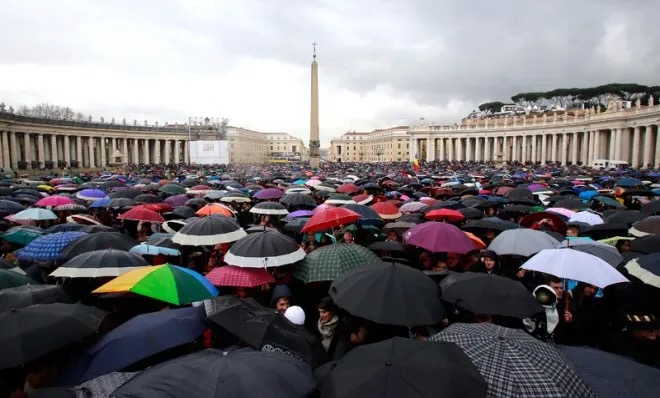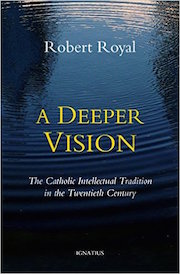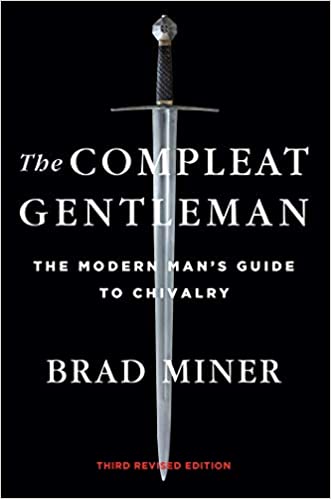Thirty years ago, St. John Paul the Great launched two new pontifical academies, the Pontifical Academy for Social Sciences (PASS) and the Pontifical Academy for Life (PAV). It was the heady days of the 1990s, when the papal magisterium offered a bold defense of life and liberty according to Gospel principles.
The Cold War had been won, not least by a revolution of conscience in Poland. How then to envision the free society? How then to build a civilization of love in the face of the West’s spreading culture of death?
The breadth and depth of the encyclicals of the 1990s – Redemptoris missio (1990), Centesimus annus (1991), Veritatis splendor (1993), Evangelium vitae (1995), Ut unum sint (1995), Fides et ratio (1998) – were simply astonishing. The John Paul-Ratzinger partnership also produced, for good measure, the Catechism of the Catholic Church (1992). It was the single most impressive decade for the papal magisterium in the history of the Church.
Into that fervent intellectual ferment, John Paul wished to insert the two new academies, the better to inform the Church’s social teaching. The academies brought together leading scholars – Nobel laureates included – across disciplines so that the Church would have access to the best scholarship in reading the signs of the times in the social order. The scholar-pope, assisted by his scholar-prefect, saw the value of gathering leading scholars, not all of whom were Catholic or even Christian.
Rome today isn’t what it was in 1994. Two recent Roman conferences highlighted just that.
Dr. Jérôme Lejeune, the father of modern genetics who discovered the chromosomes that cause Down syndrome, was a close friend of John Paul. He was passionately pro-life, heartbroken that eugenicists were using his research to abort babies diagnosed in utero. Lejeune and John Paul had lunch together just hours before the Holy Father was shot in St. Peter’s Square. John Paul asked Lejeune to draft the founding statutes of the PAV, and appointed him its first president in February 1994. Lejeune would die on Easter Sunday that same year.
Under its current president, Archbishop Vincenzo Paglia, the PAV is no longer the intellectual heart of the pro-life movement in Rome. It often confuses what it should clarify. Consequently, those committed to Lejeune’s original vision hold their own conferences now. The recent Roman one on 17th-18th May included an address from papal biographer George Weigel, who charged Paglia’s PAV with “betray[ing] its founding president.” Weigel said that a recent PAV book offered “an anti-biblical and anti-metaphysical anthropology that would have been completely foreign, indeed abhorrent, to both Jérôme Lejeune and John Paul II.”

The Pontifical Academy of Social Sciences isn’t what it was intended to be either. Its president for a very happy decade, 2004-2014, was Harvard professor Mary Ann Glendon. Its less happy chancellor was Bishop Marcelo Sánchez Sorondo, an Argentinian philosopher of no particular distinction. But under John Paul and Benedict XVI, with Professor Glendon in charge, PASS did admirable work and Sánchez was kept largely in check.
Under Pope Francis though, Bishop Sánchez busily set about turning PASS into something of an NGO, agitating on various causes, climate change primary among them, with academicians issuing policy declarations instead of scholarly analysis. Sánchez clearly desired to be a political player, inviting Bolivia’s Marxist president Evo Morales to address the PASS plenary in 2016, along with Senator Bernie Sanders. So thrilled was Sanders with the opportunity for a Vatican photo-op, he broke off campaigning against Hillary Clinton for the trip.
In 2018, knowing that Pope Francis was eager to conclude an agreement with the Chinese communist party, Sánchez took a tour of China and gave his assessment upon returning.
“Right now, those who are best implementing the social doctrine of the Church are the Chinese,” said Sánchez, lavishing praise upon the Chinese regime, and comparing it favorably to the United States. Sanchez used his position as chancellor of PASS to conduct amateur diplomacy, and rather shabby diplomacy at that.

Thus, when Sánchez retired at age 80 from the chancellorship in 2022, many who valued the original PASS vision were pleased with the appointment of Cardinal Peter Turkson as the new chancellor. Sr. Helen Alford, OP, a professor at the Angelicum in Rome, became the new president.
Alas, it seems that PASS has not recovered from its NGO-ization under Sánchez. In the same week as the Lejeune conference, PASS held a conference on the theme, “From Climate Crisis to Climate Resilience.” It featured a collection of big city mayors – Paris and London were included – and governors, all delivering largely political speeches in a putatively academic forum. NGOs routinely stage such conferences at the UN, but without the prestige of the Vatican to attract high wattage speakers.
PASS invited three Catholic governors to address the meeting, California’s Gavin Newsom, New York’s Kathy Hochul, and Maura Healy of Massachusetts. While the topic was climate change, it was more than strange that a pontifical academy would invite three governors eager to make their states favored destinations for the extreme abortion license. It was a scandal.
Governor Hochul spoke of her parents teaching her to be a “social justice” Catholic, and framed her remarks in the context of her Catholic faith and inspiration from “our Holy Father Pope Francis.” It ought not take a pontifical academy to point out that there is little justice for the unborn who are not permitted to join society in the first place.

More egregious was Governor Newsom, who delivered an openly partisan address, attacking Donald Trump for desiring to “roll back the environmental progress of the Biden Administration.”
But Newsom went further, clearly alluding to his push to expand abortions in his state:
This is the moment we’re living in, and it calls for clarity. And it calls for understanding of what we’re up against. And so, I’m very proud of living in a state that is pushing back against that agenda to roll back progress – frankly, to roll back a lot of the progress of the last century across a spectrum of issues, not just environmental stewardship, and to assert ourselves and stand tall.
For those with ears to hear, pride of place on that “spectrum of issues” belongs to abortion.
A genuine academy does not insist on only one academic approach, much less a consensus on a particular public policy position. But PASS is no longer acting as an academy when Newsom and his ilk are invited to speak. It is acting as an NGO making alliances with leaders who are aggressively promoting what John Paul, Benedict, and Francis have all decried as attacks on fundamental human rights and dignity. It was just weeks ago that Pope Francis approved the publication of Dignitas Infinita, listing an array of assaults on human dignity. The same list is the policy platform of Newsom, Hochul, and Healy.
John Paul spoke in Centesimus annus of a “human ecology,” which Benedict further developed, arguing that protecting the natural world must include protecting human nature too. Francis created a dicastery for the promotion of “integral human development.” Cardinal Turkson was the first head of it.
The academies of 1994 were occasions for Catholics to be proud of genuine intellectual engagement in the service of the faith. Thirty years on it is time to go back to that original promise.

















